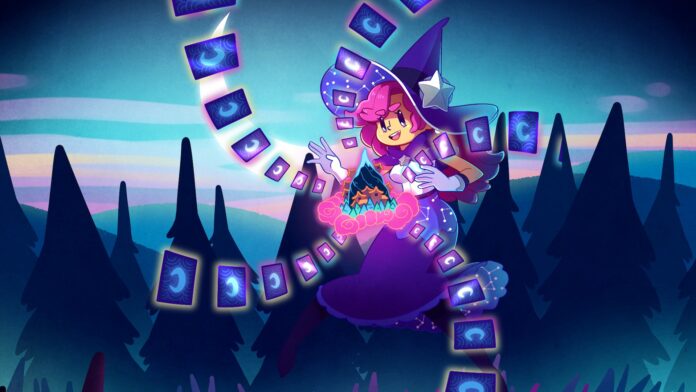Sometimes you just need that one moment of inspiration, that final push that propels you to do something you both love and dread. For American solo developer Jon Nielsen, that moment came back in 2020 while playing ‘A Short Hike‘ by Adam Robinson-Yu. “It made me think, ‘I can do that’. So I did!” he says. Nielsen is a self-taught game developer, with many of the necessary skills ‘accidentally’ acquired over the years. “It was inevitable,” he reflects.
Nielsen worked as a comic writer and artist for over ten years before transitioning to game development. Since then, he has created three games. His latest, WitchHand, garnered critical acclaim and commercial success. To ensure he never spends too much time on development, Nielsen meticulously plans his projects. “I’ve never spent longer than about a year and a half on a game,” he states. “Making sure your foundation is as strong as possible sets the tone for the entire project.”
Why did you become a solo developer?
“The inciting incident for me was playing A Short Hike back in 2020. More than any other game, it made me think ‘I can do that’. So I did! I’ve played games my whole life and always wanted to get into game dev in some capacity. It was inevitable.”
What are the biggest advantages of working solo?
“Working for myself has always been more creatively fulfilling than working for others. It’s also incredibly satisfying being able to utilize all of the skills I’ve accidentally built up over the years. Drawing and writing comics, editing podcasts, animated shorts. All built skills useful in game development! That said, I can’t take all of the credit. I’ve had help with music, sound, and some of the more complex programming stuff. Thanks Topher!”
And the biggest pitfalls?
“Probably not having anyone to tell me when my ideas are bad. And of course being the only one responsible when it all goes wrong. And having to wear so many dang hats!”

What’s your creative process?
“It starts with playing a game that makes me say ‘I want to make my version of this’. I’ll then play a bunch of other games in the same style and genre and take tons of notes. I have folders and folders of notepad files filled to the brim with notes, ideas, plans, and design outlines. I spend a lot of time in the design stage of the process. It makes asset creation and implementation go really smoothly.”
How do you stay motivated through (years of) development?
“I’ve worked on a lot of projects over the years. Some of them for almost a decade. All that practice has accidentally made me pretty good at project management and pacing myself. Low-motivation days still happen of course but they don’t stop me from reaching the final goal. No one can go at maximum power on a project for too long. It’s important to not only pace yourself and take breaks but to also plan out the scope and schedule of your project into something achievable within a reasonable amount of time. I’ve never spent longer than about a year and a half on a game.”
Will you ever work in a team or is it only solo for you?
“I’ve worked in teams before and I’m not against working in teams again in the future but I am very much a fan of being my own boss and setting my own schedule. I don’t have any grand ambitions of running a studio and working on larger scale games. I’m happy keeping it small.”

How did you come up with the idea for WitchHand?
“WitchHand started as my own 4X version of Stacklands with a witchy theme. I wanted to have a more zoomed out, macro level focus where you’re managing villages and units and foreign relations. Over time, based on feedback, it started leaning closer towards city-builder/automation, but the original bones are still there.”
What’s the biggest lesson learned from this project?
“The most important part of any project happens right at the start with the initial ideas and planning. Making sure your foundation is as strong as possible sets the tone for the entire project.”

The toll on your mental health can be quite high for solo developers. How do you deal with that?
“I try to take weekends off! I play games, I spend time with my kids, I do all the normal life stuff. My game development isn’t the all-encompassing feature of my life. I also try to manage my expectations, though I’m not always successful. It’s important to know, going in, that your game isn’t going to be an instant runaway success, especially not on your first go around. Launching a game of any size is a success. You take what you learned and make the next one even better.”

